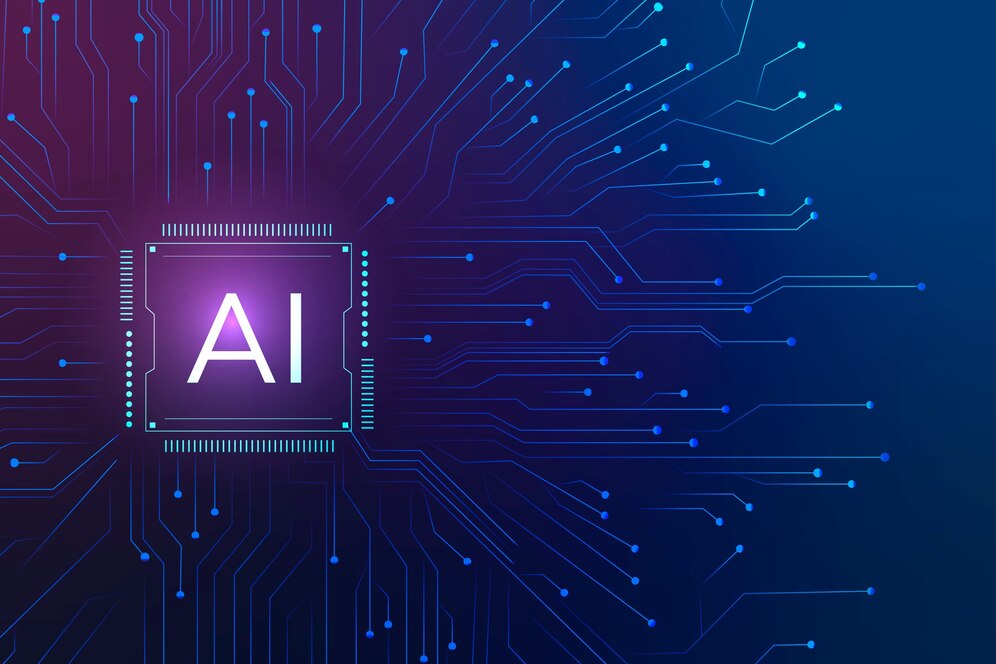Quantum AI: Rethinking Trading Algorithms In The Cryptocurrency Space
by Nabamita Sinha Technology 31 January 2024

Quantum AI is revolutionizing the world of cryptocurrency trading. With its unparalleled processing power and ability to analyze vast amounts of data, quantumaiplatform.com is reshaping the way trading algorithms are developed and executed. In this article, we will explore the intersection of Quantum AI and cryptocurrency trading, the challenges in implementing this technology, and the future implications for traders and investors.
Understanding Quantum AI
Before diving into the world of Quantum AI, it is critical to grasp the basics of quantum computing. Unlike classical computers that operate on bits (either 0 or 1), quantum computers utilize qubits, which can remain present in multiple states at the same time. This distinctive characteristic that paves the way for quantum computers to conduct complex calculations even at an unbelievable speed.
Quantum computing leverages quantum mechanics principles, such as superposition and entanglement, to perform computations. It utilizes quantum bits or qubits that might exist in several conditions simultaneously, achieving exponential processing power compared to classical computers.
Quantum bits are highly sensitive and susceptible to external interference. Therefore, scientists and researchers face significant technical challenges in effectively harnessing the capability of quantum computing.
A challenge in quantum computing is maintaining the stability of qubits. The slightest disturbance from the environment can cause qubits to lose their quantum state, leading to errors in calculations. To address this, researchers are exploring various techniques, such as error correction codes and quantum error correction protocols, to protect the fragile quantum information.
Another area of focus in quantum computing is improving the scalability of quantum systems. Currently, quantum computers have a limited number of qubits, which restricts the complexity of computations they can handle. Scientists are actively working on developing larger-scale quantum processors, which would enable more powerful quantum computations.
The Basics Of Quantum Computing
Quantum computing leverages quantum mechanics principles, such as superposition and entanglement, to perform computations. It utilizes qubits or quantum bits or that exists in different states altogether, achieving exponential processing power compared to classical computers.
Superposition is a fundamental concept in quantum mechanics, where a qubit can be in a combination of multiple states at the same time. For example, a qubit can represent both 0 and 1 simultaneously, allowing for parallel processing of information.
Entanglement is another intriguing phenomenon in quantum mechanics. When more than one qubit is entangled, the condition of one qubit becomes dependent on the other’s state, regardless of the distance between them. Such property helps quantum computers to practice certain computations more efficiently than classical computers.
Quantum computing algorithms are designed to take advantage of superposition and entanglement to solve complex problems. For example, Shor’s algorithm, a popular quantum algorithm, indulges in factoring huge numbers quite faster than all popular classical algorithm. As a result, it has significant implications for cryptography and data security.
How Quantum AI Differs from Traditional AI
Traditional AI algorithms, known as classical algorithms, are limited by the processing power of classical computers. They analyze historical data to make predictions and decisions.
In contrast, Quantum AI systems can exploit the immense processing capability of quantum computers to analyze large datasets in real-time. They can simultaneously consider multiple variables and potential outcomes, enabling more accurate and efficient trading strategies.
Quantum AI has the potential to revolutionize multiple industries, including finance, healthcare, and logistics. For instance, in finance, Quantum AI can be used to optimize investment portfolios, identify patterns in market data, and develop sophisticated risk management strategies.
Furthermore, Quantum AI can enhance drug discovery and development in the healthcare industry. By leveraging quantum computing’s computational power, researchers can simulate complex molecular interactions, accelerating the process of identifying potential drug candidates.
However, despite its promising potential, Quantum AI is yet in the early stages of development. The technology requires significant advancements in hardware, software, and algorithm design to overcome the existing challenges and realize its full potential.
Related: Quantum AI- Advance Trading
The Intersection of Quantum AI and Cryptocurrency

The cryptocurrency market is incredibly dynamic and operates 24/7 across various global exchanges. This complexity presents challenges for traders who must analyze huge data amounts to make informed decisions.
As the cryptocurrency market continues to grow and evolve, the role of technology in trading becomes increasingly important. One area that has gained significant attention is the intersection of Quantum AI and cryptocurrency. Quantum AI has the potential to revolutionize the way traders analyze and trade cryptocurrencies.
The Role of Algorithms in Cryptocurrency Trading
Algorithms plays a critical role in cryptocurrency trading. They automate the process of analyzing market trends, executing trades, and managing risk. Traditional algorithms rely on historical data and predetermined rules to make trading decisions.
However, the cryptocurrency market is highly volatile and can experience rapid fluctuations. Traditional algorithms may struggle to keep up with these changes and fail to capture all the relevant information needed for accurate decision-making.
Quantum AI algorithms, on the other hand, can analyze dynamic market data in real time and incorporate complex variables that classical algorithms struggle to consider. This ability to process vast amounts of information simultaneously gives traders a significant advantage in a rapidly changing market.
By leveraging the quantum computing power, traders can gain deeper insights into market trends and make more informed trading decisions. Quantum AI algorithms have the potential to identify patterns and correlations that may not be apparent to traditional algorithms, leading to improved profitability.
Potential of Quantum AI in Cryptocurrency
The potential of Quantum AI in cryptocurrency trading is immense. With their unparalleled processing power, quantum algorithms can identify patterns and trends that traditional algorithms may overlook. This could result in more precise predictions and improved profitability for traders and investors.
Furthermore, Quantum AI has the potential to enhance risk management strategies in cryptocurrency trading. By analyzing vast amounts of data in real time, quantum algorithms can quickly identify potential risks and adjust trading strategies accordingly. This can help traders minimize losses and maximize profits in a volatile market.
Another area where Quantum AI can make a significant impact is in the field of security. Cryptocurrencies are built on blockchain technology, which relies on cryptographic algorithms to ensure the security of transactions. Quantum computers carry the ability to break these cryptographic algorithms, posing a threat to the security of cryptocurrencies.
However, Quantum AI can also be used to develop new cryptographic algorithms that can withstand quantum attacks. After leveraging the potential of quantum computing, researchers might develop more secure and robust cryptographic systems, ensuring the long-term viability of cryptocurrencies.
In conclusion, the intersection of Quantum AI and cryptocurrency holds immense promise for the future of trading and investment. Quantum AI algorithms have the potential to revolutionize the way traders analyze and trade cryptocurrencies, leading to improved profitability and risk management. Furthermore, Quantum AI can also contribute to the development of more secure cryptographic systems, ensuring the long-term security of cryptocurrencies.
Challenges in Implementing Quantum AI for Cryptocurrency Trading
While the potential benefits of Quantum AI in cryptocurrency trading are exciting, several challenges must be addressed before widespread adoption can occur.
Technical Hurdles in Quantum Computing
Quantum computing is still in its infancy, and many technical hurdles need to be overcome. Quantum systems are fragile, and errors can occur due to factors such as environmental interference and qubit decoherence. Researchers must develop error-correcting codes and stable qubits to ensure reliable and accurate quantum computations.
Regulatory and Security Concerns
The rapid advancement of Quantum AI technology raises concerns in terms of regulation and security. As quantum computers become more powerful, they could potentially break encryption algorithms that currently secure our digital infrastructure. Regulatory frameworks and security measures must adapt to mitigate these risks.
The Future of Quantum AI in Cryptocurrency Trading

The future of Quantum AI in cryptocurrency trading holds great promise. As quantum computing technology continues to mature, several developments are expected to take place.
Predicted Developments in Quantum AI
As scientists make progress in developing stable and error-free quantum computing systems, Quantum AI algorithms will become more sophisticated. They will be capable of handling even more complex datasets and executing advanced trading strategies.
Implications for Traders and Investors
The adoption of Quantum AI in cryptocurrency trading will provide traders and investors with unprecedented opportunities. With access to real-time analysis and enhanced predictive capabilities, traders will be able to make more informed and profitable decisions. Investors can also benefit from improved risk management and higher returns on investment.
Conclusion: The Quantum Leap in Cryptocurrency Trading
Quantum AI is reshaping the landscape of cryptocurrency trading. By leveraging the immense processing capability of quantum computers, trading algorithms are becoming more sophisticated and effective. However, there are still challenges to overcome before widespread adoption is possible. As we navigate this exciting intersection of Quantum AI and cryptocurrency, it is crucial to anticipate and address these challenges to unlock the full potential of this revolutionary technology.
Read Also:



































































































